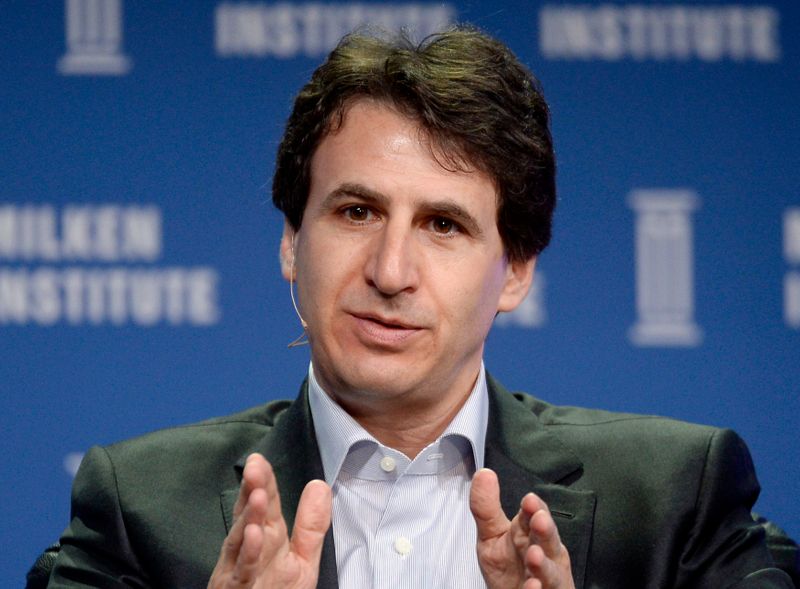(Reuters) -Apollo Global Management Inc said on Tuesday its first-quarter distributable earnings rose 78%, driven by growing management fees from its sprawling credit business and a surge in asset sales from its private equity portfolio.
The first quarterly earnings were the first reported by Apollo with co-founder Marc Rowan at the helm as chief executive. He succeeded Leon Black, who left the New York-based private equity firm in March following a review by law firm Dechert of his ties to late financier and convicted sex offender Jeffrey Epstein.
The review found Black paid Epstein $158 million for advice on tax and estate planning and related services between 2012 and 2017. It cleared Black of any wrongdoing.
“So I am the CEO of the business,” Rowan said during an analyst earnings call. “The lanes I have picked out for myself are strategy, culture, which includes compensation, communication, urgent strategic initiatives, and dealing with problems.”
In naming Rowan as CEO, Apollo passed over co-founder Joshua Harris, who had been widely expected to take over the top job from Black. Apollo co-Presidents Jim Zelter and Scott Kleiman were given charge of the day-to-day running of company. But Rowan said Harris remains active as a senior member of the executive team and board member.
“Yes, we have had changes in roles,” Rowan said. “Josh is less involved in compensation, which seems like a natural given that I’m now the CEO.”
Apollo’s shares were down 1.18% at $54.42 per share in late morning trading on the New York Stock Exchange.
EARNINGS BEAT
Apollo said on Tuesday that first-quarter distributable earnings – cash used for paying dividends to shareholders – rose to $293.8 million from $165.1 million a year earlier. This resulted in distributable earnings per share of 66 cents per share, greater than the 58 cents estimated by Wall Street analysts on average, according to financial data provider Refinitiv.
Apollo peer Blackstone Group Inc reported last month that its distributable earnings more than doubled in the first quarter, while Carlyle Group Inc said its after-tax distributable earnings rose 23% on strong asset sales from its private equity business.
Apollo said it sold $3.7 billion worth of assets in the first quarter. It exited its entire stake in luxury watch retailer Watches of Switzerland, as well as U.S. subprime lender OneMain Holdings Inc. It also sold a 9% stake in French glass bottle maker Verallia.
The company also put a lot of capital to work. It deployed some $24.9 billion in the quarter, $19.1 billion of which want to credit investments.
In March, Apollo agreed to an all-stock merger deal with Athene Holdings Ltd, bringing in-house the annuities provider, which is a key contributor to revenue generated from lucrative asset management fees.
Apollo said its fee-related earnings rose 26% to a record $286.7 million, driven by strong management, advisory and transactions fees. It reported a net income of $669.7 million under generally accepted accounting principles (GAAP), also a record.
Apollo said its private equity portfolio appreciated by 22% during the quarter, while its real estate, principal finance, and infrastructure funds rose 12%. Its credit funds rose 4% in aggregate.
Total asset management rose to $461.1 billion from $455.5 billion in the prior quarter, driven by fundraising and the appreciation of its private equity portfolio. Apollo, which ended the quarter with $49.7 billion in unspent capital, declared a dividend of 50 cents per share.
Earlier this month, Apollo agreed to buy the media unit of Verizon Communications Inc, which owns online services Yahoo and AOL, for $5 billion.
(Reporting by Chibuike Oguh in New York; Editing by Jacqueline Wong and Jonathan Oatis)

























